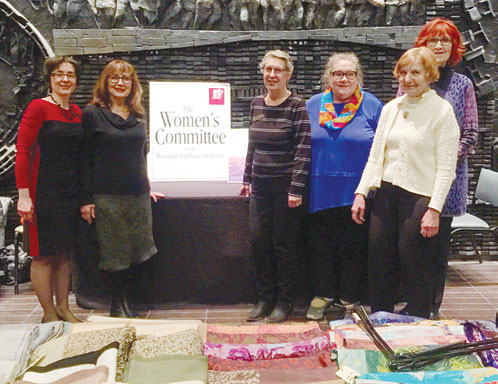
Random Notes
In the year 2000, as a new board member of the Canadian Conference of the Arts, I had the opportunity to serve on a project called the Voluntary Sector Initiative. This was a project that was intended to pull together people from all parts of Canada’s voluntary sector and different federal government departments to discuss common concerns and come up with an accord that would help to improve working relationships and processes between federal government departments and charities.
I had been working in the cultural sector and become engaged in local and national advocacy and policy initiatives related to cultural organizations and artists, but I had not spent a lot of time thinking about the voluntary sector as a whole. This project was about to change all that.
The voluntary sector is a very important part of making Canada the place that offers such a wonderful quality of life to its citizens. It surprised me to learn that there are more than 170,000 charitable and non-profit organizations in Canada. These organizations run gardening programs, festivals, theatres, drop-in centres, food banks, international aid projects, schools, orchestras, education programs, churches, synagogues, mosques, health services, sports teams, training programs, mental health facilities, environmental action groups, camping and hiking organizations, museums, animal shelters, and much more.
More than two million people are employed in the charitable sector in Canada, and more than 13 million people volunteer for charities. The size of the charities ranges from very small grass roots organizations that emerge to deal with a specific need in a community to very large national charities that serve the whole country with complex programs. All of these charities exist because there is a gap between what for-profit businesses and governments can effectively provide to communities. We can sometimes forget that each community has needs that cannot be met on a for-profit basis, or run as a government program. This is where the charitable sector steps in to make our communities better and more interesting places to live.
My participation in that project absolutely changed my understanding of the ways our community works, and it has given me a profound appreciation for what people call civil society. Civil society is a powerful movement of people motivated by community good to work together to meet needs in our community.

The world of the voluntary sector offers both employment for many people and countless opportunities to use some of your time to help out with initiatives that are important to you. At the Winnipeg Symphony Orchestra, I am so inspired by the volunteers that give of their time and energy to make it possible for our community to have a professional symphony orchestra. People help with greeting audience members at concerts, selling raffle tickets, serving on committees and the board of directors. Volunteers also generously give their time through the WSO Women’s Committee to hold events, run the Music Stand store at the concerts, help with the fundraising galas, assist with the Sistema Winnipeg Program, or help with our education programs.
There is a voluntary sector opportunity that is just right for each of us. Whatever your interest or passion may be, there is a voluntary organization that can use your time and expertise. Through involvement with these organizations you can do some good and make some new friends. If you want to make your life richer and more interesting, find a cause that interests you and sign on for what may become the most engaging effort of your life.
Trudy Schroeder is the Executive Director of the Winnipeg Symphony Orchestra.

